Foreword:
In a blink of an eye, it was almost the end of the year. This year was the most common year. As the epidemic hit at the beginning of the year, I worked from home for several months. That is to say, this year is also my 10th working year in Shanghai, and I have slowly entered a 30-year-old midlife crisis. So at the end of last month, I decisively chose to resign, and then I set foot on the team that everyone is familiar with at the peak of employment interviews. During this interview, I delivered first-tier companies such as Ant Financial, Baidu, Didi, Meituan, Alibaba, JD.com, and other unicorns. I also interviewed a few companies. The content of the interview was similar. Most of the questions are about thread concurrency, spring, distributed, etc.
But what impressed me the most was the interview with Ali, because the technical questions I asked the interviewer, and those interviewed in other factories, I think they all have a flavor.
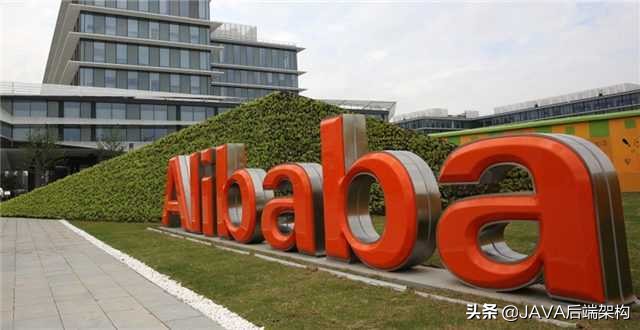
Ali interview questions
one side:
1: Self-introduction:
2: Face-to-face: Talk about what you have done in the project that you have a deep impression or think you have done better?
Answer: I think I did a good job at Xx. I used XX requirements to achieve XX functions and improved performance. It's N times... Waiting for a lot of crackling.
3: Face: You said that you have used AOP, can you talk about its implementation principle?
Answer: It is implemented by dynamic proxy, which is divided into JDK itself and CGLIB........... ...
4: Face: Well, can you talk about their differences and advantages and disadvantages?
Answer: JDK is based on interface implementation, while CGLIB inherits proxy classes. . . (That’s how I will keep asking, if I’m almost done, I’ll start to ask some scattered questions:)
5: JMM memory model, how to divide it? What are the contents stored separately? Is it thread safe?
6: Class loading mechanism, talked about After the parent delegation model, you will be asked what violates the parent delegation model? Why? Why double
7: parent delegation? What are the benefits?
8: How do you use multithreading? What are the benefits? The meaning of several core parameters of the thread pool?
9: The way of communication between threads?
10 The principle of HashMap? When it comes to thread unsafety, ConcurrentHashMap is naturally derived. How is it implemented?
11: How to design the sub-database and sub-table? Vertical split, horizontal split?
12: Business ID generation rules, what are the ways?
13: SQL tuning? What are the precautions for normal use of the database?
14: When an application starts slowly How to optimize?
15: Understanding of optimistic locking and pessimistic locking;
I can’t think of the others, probably the above. Finally, I briefly talked about the problems of the projects I have done before. Tell me before the end and then I will change to a colleague to communicate with me. After hearing such a reply, I should be like this. Up.
One side summary:
First, confirm the degree of intention to Ali (if you are in a different place, you will consider the degree of intention to work (Hangzhou)! Ali values this); secondly, the interviewer will generally communicate specific technologies for the projects you have done, and will compare Pay attention to whether the individual has mastered the details of the project, mainly examine the technical basis and principles of java, such as the Spring framework and the three aspects of the database and JVM, and will also discuss the implementation of distributed and thread pools, etc., focus on whether there are comparisons Study technology and technical highlights [not necessarily every aspect is great, but there must be bright spots];
Two sides:
1: Change the method to ask a lot of thread pool knowledge (mainly examine the corresponding parameters)
2: java memory model
3: the difference between lock and synchronized
4: the difference between B+ tree and B-tree
5: composite index
6: The difference between clustered index and non-clustered index?
7: What is the difference between the primary key and unique index of a database index?
8: Index failure conditions, when should the index be established
9: The difference between innDB and MyISAM?
10: Thread safety (blocking synchronization, non-blocking synchronization, no synchronization)
11: Talk about the Java class loading process?
12: Describe the principle and mechanism of JVM loading Class files?
13: What is GC? Why is GC?
14: Briefly describe the Java garbage collection mechanism.
15: How to judge whether an object is alive? (Or how to determine the GC object)
16: What is the basic principle of the garbage collector? Can the garbage collector reclaim memory immediately?
Is there any way to proactively notify the virtual machine for garbage collection?
17: Why are the stop() and suspend() methods not recommended?
18: What is the difference between sleep() and wait()?
19: What are the similarities and differences between synchronous and asynchronous, and under what circumstances are they used?
20: Briefly describe the similarities and differences between synchronized and java.util.concurrent.locks.Lock?
21: Please tell me the thread synchronization method you know.
22: What is a thread starved to death, and what is a livelock?
23: What is ThreadLocal?
Two-sided summary:
In-depth understanding of technical strength, understanding of your knowledge, understanding of your problem-solving ability and the ability to use technology flexibly according to the project, and also through this process to investigate teamwork ability, learning initiative and innovation, you can choose 2-3 Do a careful technical review and unique understanding of the typical projects you have passed [this will be your bonus item];
Three sides:
1: Regarding the continuation hierarchy of Java exceptions, describe the continuation relationship of exceptions;
2: How do java threads start? What are the ways to lock in java and how to write it?
3: Understanding of optimistic and pessimistic locking;
4: How the heap is managed in JVM, JVM's memory recovery mechanism, introduce
5: the difference between redis cache and memcached cache, and their respective advantages and disadvantages
6: microservice architecture: The difference between dubbo and springcloud, and their corresponding usage scenarios.
7: How to load balance the thread pool
8: How to design single sign-on, the principle of single sign-on
9: The realization principle of synchronized? Can Volatile guarantee atomicity? why?
10: Tell me about GC?
11: TCP three-way handshake, why three-way handshake?
12: Mysql deadlock, how to solve it, if the execution order is not required, how to solve the deadlock
Face: Let’s ask a digression:
13: What do you think of Alibaba?
14: What do you think of 996?
15: Talk about your strengths and weaknesses
Three-sided summary:
Their final executive re-examination will involve related technical issues, most of which are macro-controls of your overall values (such as motivation, responsibility, mentality, work passion, etc.)
HR confirmed:
Basically, from the general direction, understand your mentality, ability to withstand stress, your role at work, general plans for the future, and your intention to Ali
[Technical basics and problems, just read the book and prepare, it doesn’t matter if you don’t understand it, you can’t understand it directly; check the details of the project more, talk about your own technical highlights according to the project, can express clearly, and guide The interviewer will ask you technical questions that you are good at, so you can play to your heart’s content]
The characteristics of talents that Ali prefers: passion for technology, strong technical foundation strength; initiative, good at teamwork, good at summarizing and thinking;
Interview summary
In the dozen or so companies that I interviewed, I found that the interviews of those large companies were easier, and those of the smaller ones were more demanding. Anyway, just pick the thorn in your fish. Finally, I am sharing my experience
The first point: Pack a unique resume of your own
The second point: prepare accordingly for the interviewing company
The third point: learn to actively ask questions during the interview
The fourth point: answer the questions truthfully on technical issues (will be, if not, will not)
Fifth point: Have strong technical knowledge
The sixth point: With strong technical knowledge, the premise is to have a systematic learning system.
The friends who see here should be old iron. I also shared some of the core technical knowledge points that most of the interview questions mentioned above need to master.
java core knowledge points
jvm
- Thread
- jvm memory area
- jvm runtime memory
- Garbage collection
- GC generational collection algorithm VS partition collection algorithm
- GC garbage collector
- Java IO / NIO
- jvm class loading mechanism
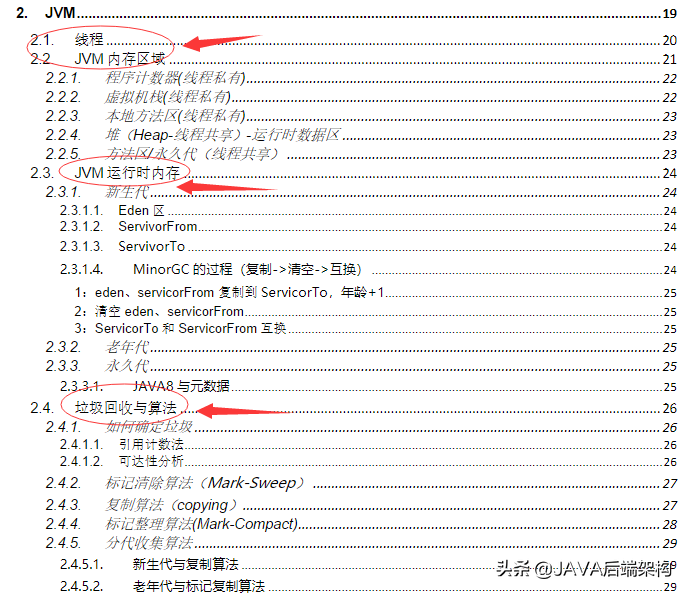
java multithreaded concurrency
- JAVA Concurrent Knowledge Base
- JAVA thread realization creation method
- 4 types of thread pools
- Thread life cycle
- java lock
- Basic thread method
- Genlock in deadlock
- Principle of Thread Pool
- Thread scheduling
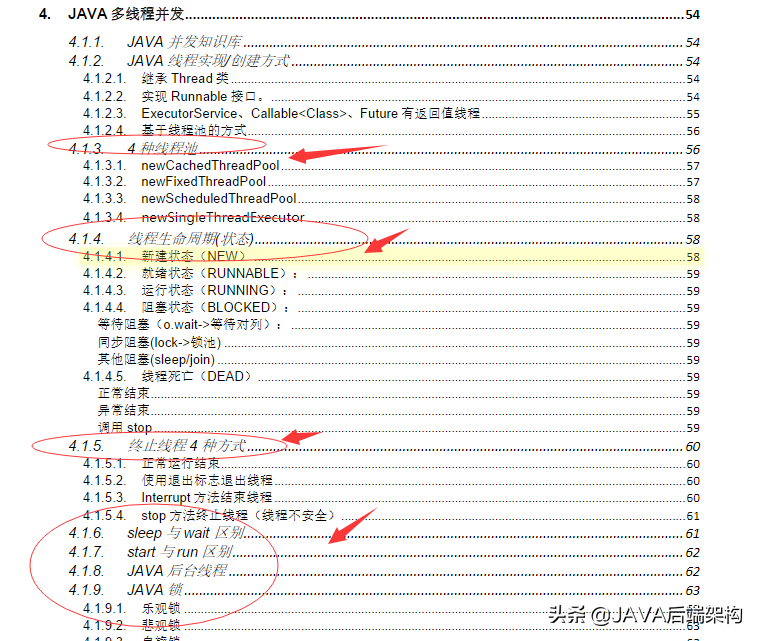
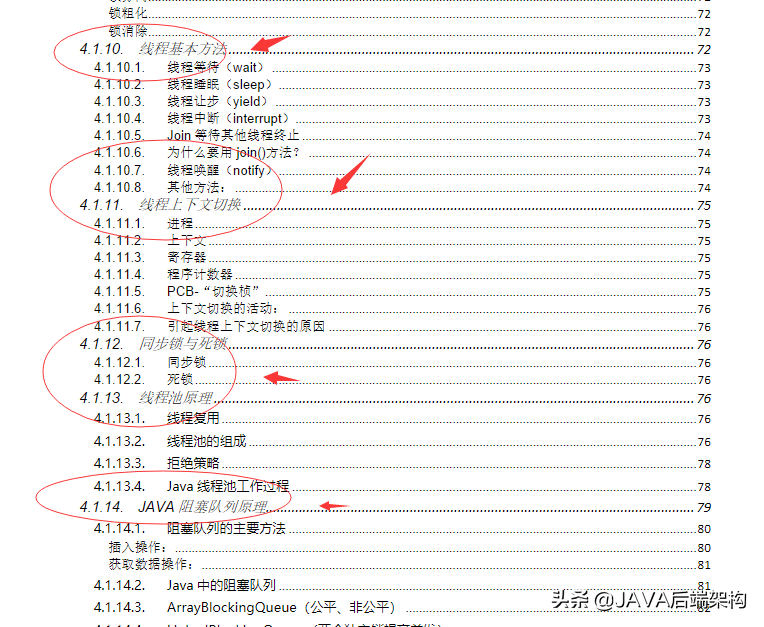
Microservice
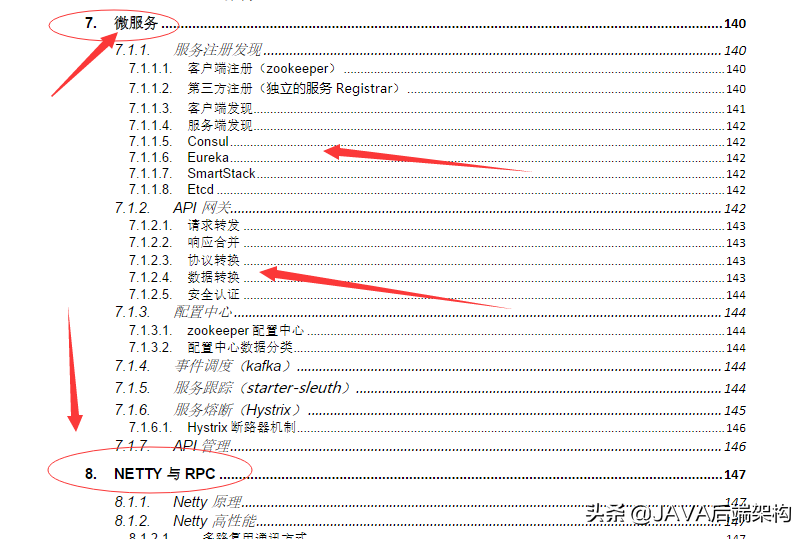
end
Due to time constraints, the content is too long. I see here are true fans, true love, the previous interview questions are summarized, I hope to help everyone, the core knowledge points in the back are organized, because the document is too long, I can only stop here.
If you want to get a complete core knowledge point document, you can follow the author
【method of obtaining】
Follow + After forwarding, scan the QR code in the picture below to add a small assistant WeChat to obtain
